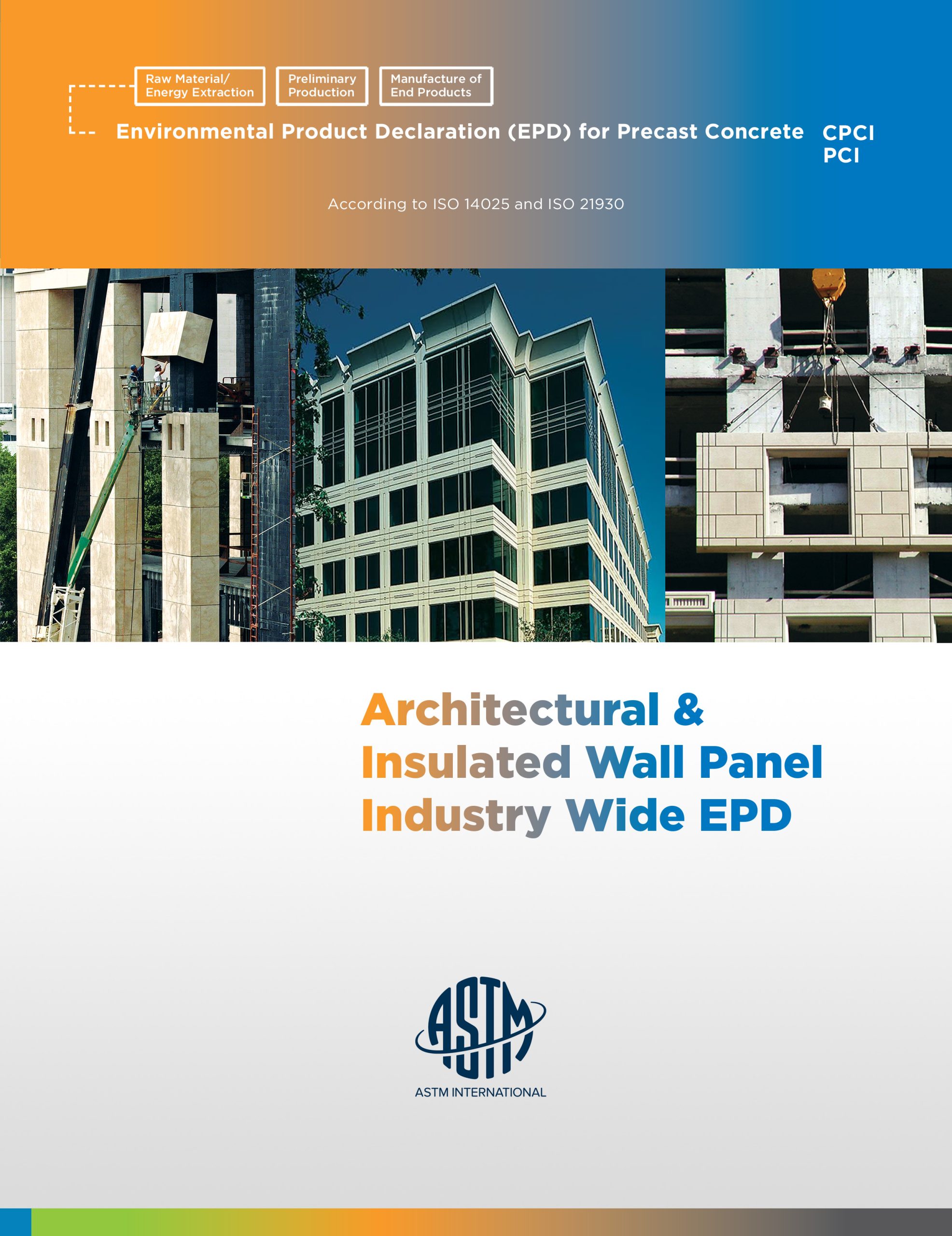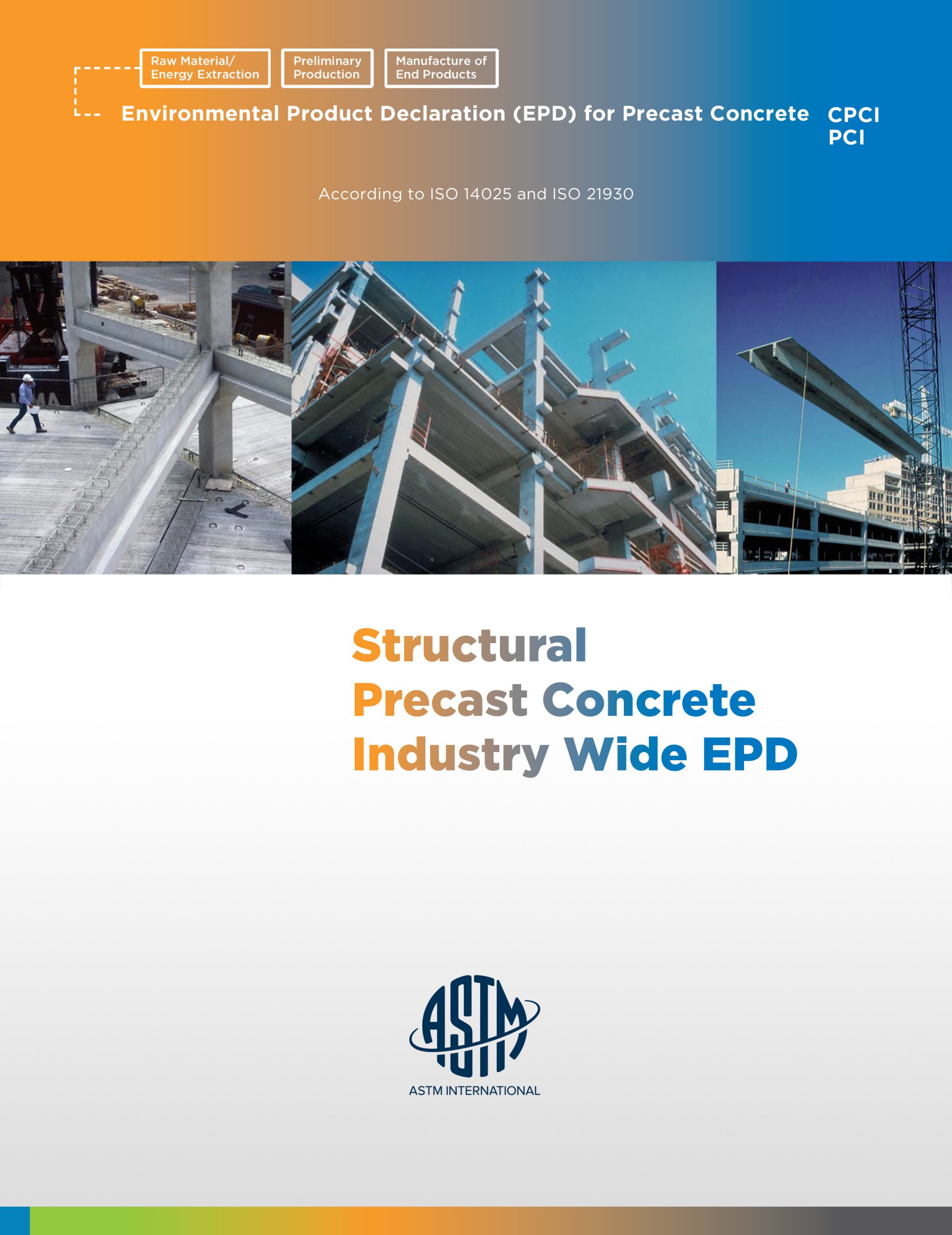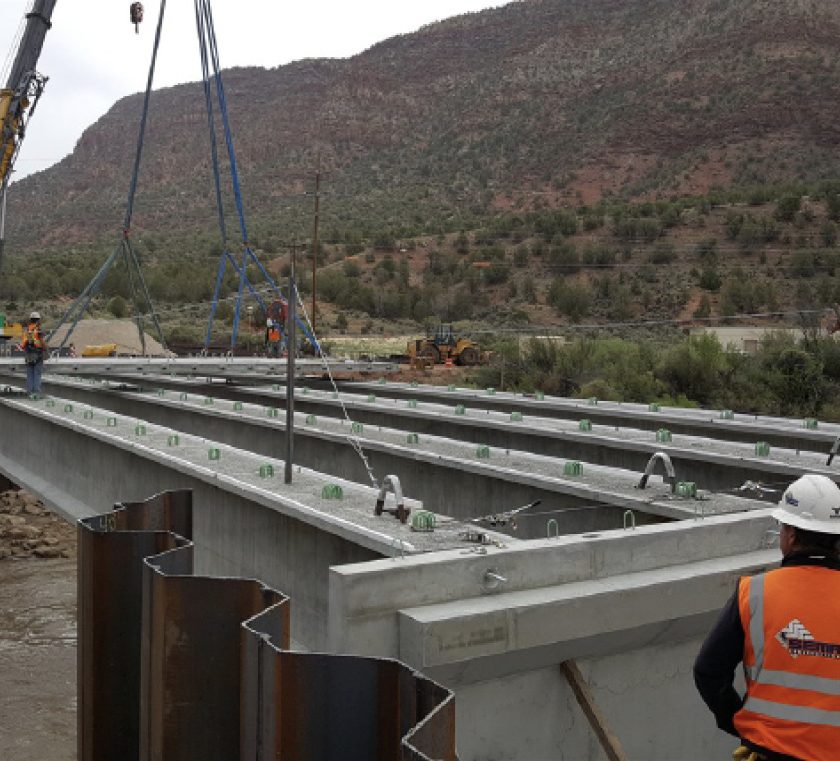A visit with 2023 Precast/Prestressed Concrete Institute Chair Matt Ballain
BY JOSEPHINE PATTERSON

Matt Ballain, vice president and general manager of Coreslab Structures (INDIANAPOLIS), has become the chair of the Precast/Prestressed Concrete Institute following a series of pivotal predecessor moves over the past decade. Among the deliverables are the formal reporting system for building and transportation product or structure shipments; revised PCI Architectural Plant Certification categories; joint American Concrete Institute-PCI Committee 319; and, the new Workforce Development Committee.
Ballain brings to the leadership role an educational background in accounting and finance (dual bachelor degrees from Northwest Missouri State University) as well as an MBA from the University of Nebraska at Omaha. His career path over the years includes roles in estimating, sales, project management, and operations management. These skills go hand in hand with the education and metrics mindset attending the main focus at PCI this year: An expanded Environmental Product Declaration (EPD) library, with additional sub-categories and regional metrics, which will allow producer members to bring relevant precast, prestressed concrete transparency data to public and private project teams tracking embodied carbon.
ENVIRONMENTAL FOCUS
“Environmental Product Declarations are becoming an increasingly important tool in the construction industry. To assist the market in evaluating our environmental impact, PCI is going to develop additional EPDs for product types across the country,” explains Ballain. “This is necessary to assist specifiers in their material selection and provide an accurate assessment of our industry. Without this, precast, prestressed concrete may not be able to be used on projects due to lack of EPDs, which are needed to meet project specifications.”
In fact, the U.S. General Services Administration and the U.S. Department of Transportation have indicated over the past 18 months strong intention of scrutinizing building or construction material and products’ environmental impacts and incentivizing procurement of low carbon alternatives to conventional specifications. The former agency’s Low Embodied Carbon Concrete Standards for All GSA Projects, released in March 2022, requires contractors to provide EPDs for ready-mix concrete, where available. It compels procurement of ready-mix concrete mixtures exhibiting production stage greenhouse gas (GHG) emissions at levels 20 percent below national averages for compressive strength classes.
Along with federal directives, state and local governments are also pushing policies in which EPD submittals will be required or will become the most accepted method of documenting carbon metrics. Early movers at the state level include the Colorado Department of Transportation, which will require EPD submittals for precast concrete elements or structures specified on agency projects beginning this July. Like many public and private construction stakeholders, CDOT recognizes the transparency EPDs exhibit for reporting carbon dioxide emissions, typically expressed for concrete as kilograms of CO2 per cubic yard or meter of concrete.
Once the expanded library of national EPDs is compiled, PCI will present the information to the American Institute of Architects, which will then be followed by regional implementation. “This will enable us to perform online and in-person ‘Lunch and Learns’ to assist with education on our environmental impact,” Ballain says.
PCI has previously published industry-wide, cradle-to-gate EPDs for Architectural and Insulated Precast, and Structural Precast manufactured by member companies in 2016 and 2019. These declarations were prepared in accordance with ISO 14025 and ISO 21930, ASTM International’s program operator rules, and the Product Category Rule for Precast Concrete.
COURSE DEVELOPMENT
Beyond the public and private construction stakeholder education effort the EPD ramp up will encompass, PCI is currently creating course material for engineering students and professors examining fundamentals of precast, prestressed for building and heavy/civil applications. Matt Ballain has a special interest in PCI’s education efforts, as he has served on many of the Institute’s education committees and Education Council the last several years.
“PCI, in conjunction with some of the top precast, prestressed-concrete engineering professors in the country, is finalizing professor teaching materials for a 13-week course,” says Ballain. “These materials are intended to assist professors who are newer to teaching this class and assist those already teaching with topics they may not be as familiar with. Each session is independent and can be used on its own if desired.”
Sessions will include Methods of Prestressing/Production/Prestressing Technology; Flexure – Stress, Strength, Design; Panel Fabrication; Deflection and Camber; and, End-Zone Reinforcement.
PRECAST/PRESTRESSED CONCRETE INSTITUTE
AT-A-GLANCE
Founded in 1954, PCI is the leading developer of standards and methods for designing, fabricating, and constructing precast concrete structures and systems. Membership encompasses producers, precast concrete system erectors, architects, consultants, contractors, developers, educators, engineers, materials suppliers, service providers, and students. The Institute maintains a staff of technical and marketing professionals to foster greater understanding and use of precast, prestressed concrete. It also operates the world’s leading certification program for precast concrete system plants and erectors, and is an accredited American National Standards Institute Standards Developer.
PCI publishes an array of technical manuals, documents, plus the PCI Journal (industry-wide, technical focus), Ascent (architecture and buildings market) and Aspire (transportation markets) periodicals. Additionally, it conducts research & development projects, along with building and transportation PCI Design Awards programs, and is a partner with the National Precast Concrete Association in the annual The Precast Show. The Institute headquarters is at 8770 W. Bryn Mawr Ave., Suite 1150, Chicago, IL 60631; 312/786-0300; pci.org.
CHAIR
Matt Ballain
Vice President/General Manager
Coreslab Structures
(INDIANAPOLIS) Inc.
Indianapolis, Indiana
VICE CHAIR
Jim Fabinski, P.E., LPCI
Vice President/General Manager
EnCon United
Denver, Colorado
SECRETARY/TREASURER
Carlos D. Cerna
President & CEO
Manco Structures
Schertz, Texas
IMMEDIATE PAST CHAIR
J. Matt DeVoss
President
Jackson Precast, Inc.
Jackson, Mississippi
PRESIDENT & CEO
Bob Risser, P.E.


CORESLAB STRUCTURES (INDIANAPOLIS)
AT-A-GLANCE
Coreslab Structures (INDIANAPOLIS) Inc. is recognized as a leader in the design, manufacture, and erection of structural and architectural precast, prestressed concrete products and buildings. The plant has been in continuous operation since 1963 with Coreslab Structures acquiring the facility in 2004. It has been certified by the Precast/ Prestressed Concrete Institute for over 40 years, currently as an AB and C3 certified plant.
Coreslab products are routinely specified and used for parking garages, stadiums and arenas, commercial, industrial and institutional buildings. The Indianapolis plant serves Indiana and surrounding states. In addition to the Indianapolis location, Coreslab Structures has 16 precast, prestressed concrete facilities across North America.

